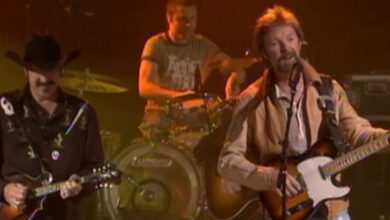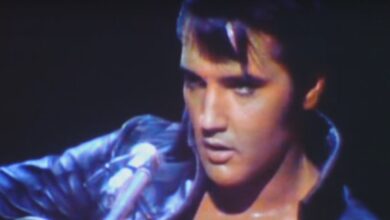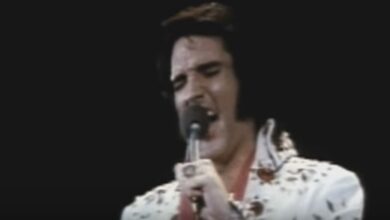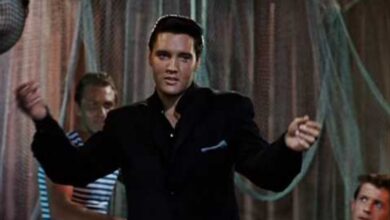Priscilla Reveals Elvis’s Emotional Song Performance Is This One
Elvis Presley, often referred to as the “King of Rock and Roll,” was born on January 8, 1935, in Tupelo, Mississippi. His influence on the music industry and popular culture is immeasurable, earning him a place as one of the most significant cultural icons of the 20th century. From his early days at Sun Records to his legendary performances in Las Vegas, Elvis’ impact continues to reverberate long after his passing.
One of the defining moments of Elvis’ career came during his 1968 Comeback Special, a televised event that marked his return to live performances after a period of focusing on film acting. The special showcased Elvis’ versatility as a performer and reaffirmed his status as a musical powerhouse.
During the special, Elvis delivered a mesmerizing rendition of “If I Can Dream,” a song that resonated deeply with audiences and critics alike. Written by Walter Earl Brown, the song’s poignant lyrics reflected the social and political climate of the late 1960s, offering a message of hope and unity in the face of division and turmoil.
Dressed in all black, Elvis took to the stage against a darkened backdrop, accompanied by a full orchestra and a choir. His commanding presence and powerful vocals commanded the attention of viewers as he poured his heart and soul into the performance. With lyrics like “If I can dream of a better land, where all my brothers walk hand in hand,” Elvis tapped into the collective yearning for a more harmonious and just society.
The orchestral arrangement of “If I Can Dream” added a layer of grandeur and depth to the performance, complementing Elvis’ vocals with sweeping melodies and dramatic crescendos. The addition of a choir further heightened the emotional impact of the song, infusing it with a sense of uplift and inspiration.
Beyond its musical brilliance, Elvis’ performance of “If I Can Dream” carried significant cultural weight. At a time when America was grappling with issues of civil rights, Vietnam War protests, and social upheaval, Elvis used his platform to deliver a message of hope and solidarity. His impassioned delivery and unwavering commitment to the song’s message resonated with audiences, transcending barriers of race, class, and politics.
The legacy of Elvis Presley’s performance of “If I Can Dream” endures as a testament to the transformative power of music and the enduring spirit of hope. It serves as a reminder of Elvis’ ability to connect with audiences on a profound level and his unwavering commitment to using his talent for positive change. As one of the defining moments of his career, the performance stands as a testament to Elvis’ enduring legacy as a cultural icon and musical pioneer.





